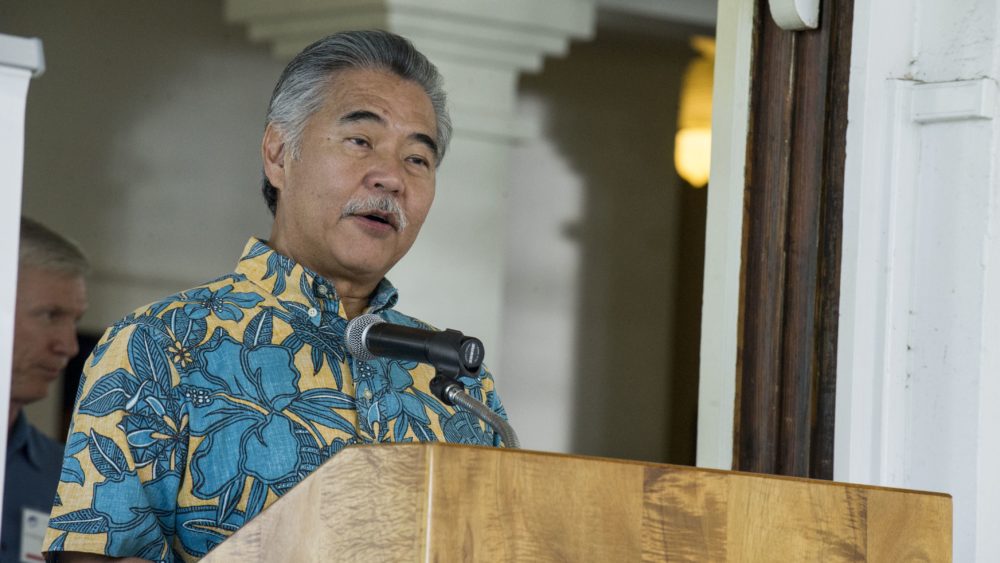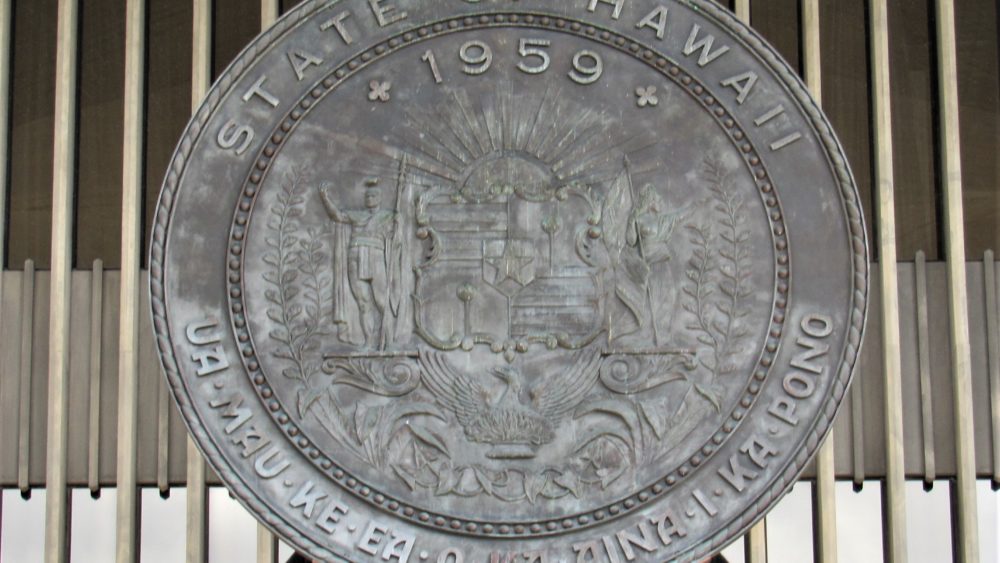July 9, 2021 •
Hawaii Special Legislative Session Adjourns Sine Die

Hawaii Gov. David Ige
The special session of the Hawaii Legislature adjourned sine die July 8, spanning a brief two days. Lawmakers made several corrections to the state budget at the suggestion of Gov. David Ige and overrode six veto measures, including House Bill […]
The special session of the Hawaii Legislature adjourned sine die July 8, spanning a brief two days.
Lawmakers made several corrections to the state budget at the suggestion of Gov. David Ige and overrode six veto measures, including House Bill 53, the legal mechanism that authorizes the state government to borrow more than $1 billion in the next two fiscal years to fund construction projects.
The session end triggers a lobbyist and employer activity report due August 7, which is 30 days after adjournment sine die of the special session. The report will cover the period from May 1 through July 8 and applies to and includes only those expenditures and contributions relating to legislative action considered during the special session. Expenditures and contributions included in the report do not need to be included by the person filing the report in any subsequent statement of expenditures.

State of Hawaii
High-ranking government officials in Hawaii will soon be subject to revolving door provisions after the passage of an ethics bills establishing clearer boundaries between government and private-sector lobbyists. House Bill 0671 creates a 12-month cooling off period before government officials […]
High-ranking government officials in Hawaii will soon be subject to revolving door provisions after the passage of an ethics bills establishing clearer boundaries between government and private-sector lobbyists.
House Bill 0671 creates a 12-month cooling off period before government officials may be paid by private parties to lobby the Legislature or administrative agencies. The revolving door restriction applies to the governor, lieutenant governor, executive department heads, legislators and permanent legislative staff, and other high-ranking paid government officials.
The bill will become effective January 1, 2022, as it was not on Gov. David Ige’s Intent to Veto list.
June 30, 2021 •
Hawaii Governor Calls for Special Legislative Session July 6

State of Hawaii
Lawmakers will return to the Hawaii State Capitol on Tuesday, July 6 to consider overriding Gov. David Ige’s vetoes of measures the Legislature approved this year, and to make some necessary fixes to bills that deal with state finances. Gov. Ige said […]
Lawmakers will return to the Hawaii State Capitol on Tuesday, July 6 to consider overriding Gov. David Ige’s vetoes of measures the Legislature approved this year, and to make some necessary fixes to bills that deal with state finances.
Gov. Ige said he intends to veto 28 bills passed by his fellow Democrats, which is an unusually high number.
The governor is not required to veto all 28 bills and still has the option of signing some of them or allowing them to become law without his signature. That makes it difficult for lawmakers to precisely plan their response, since they do not know yet which measures Gov. Ige will finally reject.
The governor has until 11:59 p.m. on July 6 to veto measures passed this spring. If he takes no action by that date, the bills will then become law with or without his signature.
Gov. Ige has also said he needs amendments to some budget bills because lawmakers specified in the budget the state must use federal funds from the American Rescue Plan Act to repay more than $300 million in bond debt.
The federal government does not allow the state to use pandemic relief funding to pay down debt, and lawmakers will thus need to appropriate money from other sources to cover state borrowing.
That means lawmakers must approve a fix that will ensure the state meets its debt obligations. If the governor and the Legislature can agree on language that would accomplish that, lawmakers can approve an amendment with a simple majority next month without a veto override.
The special session affects lobbyist reporting. A lobbyist and employer activity report must be filed within 30 days of adjournment sine die of any special session covering the period from May 1 through adjournment sine die of the special session. The report applies to and includes only those expenditures and contributions relating to legislative action considered during the special session. Expenditures and contributions included in the report do not need to be included by the person filing the report in any subsequent statement of expenditures.
State and Federal Communications, Inc. provides research and consulting services for government relations professionals on lobbying laws, procurement lobbying laws, political contribution laws in the United States and Canada. Learn more by visiting stateandfed.com.

